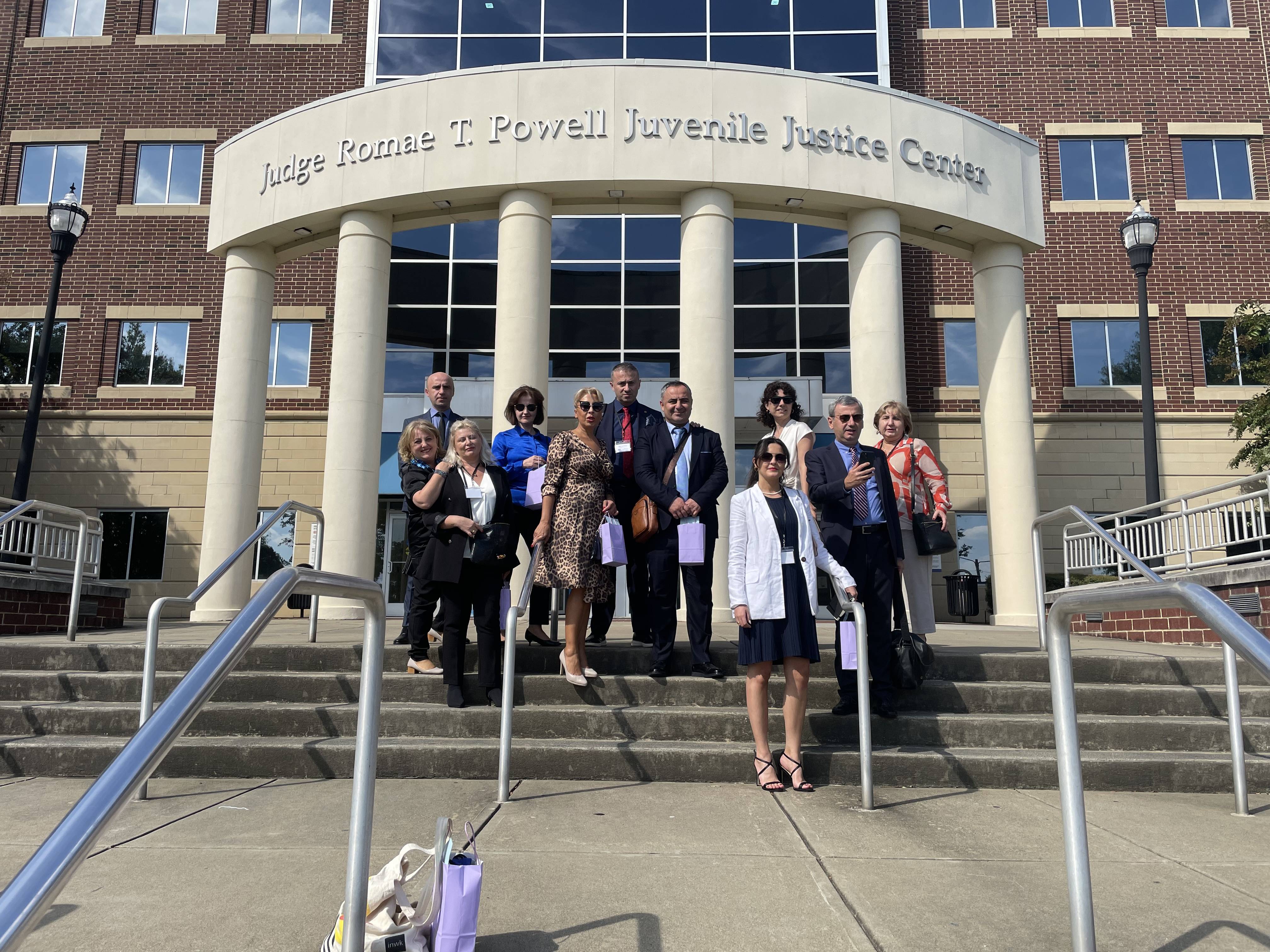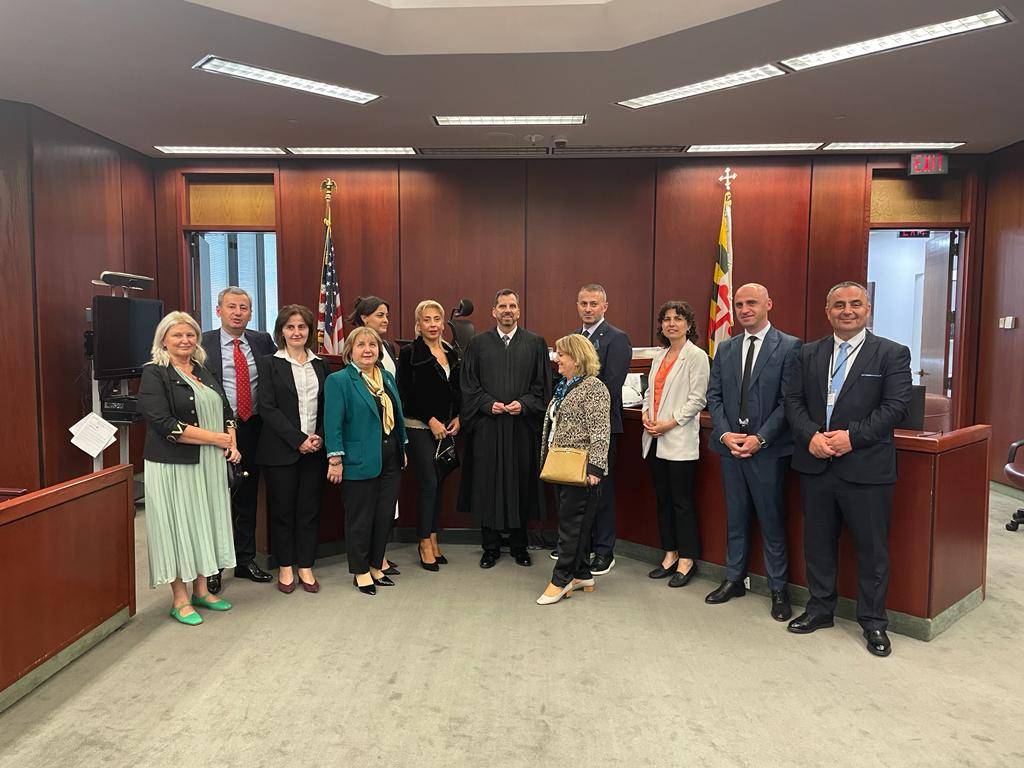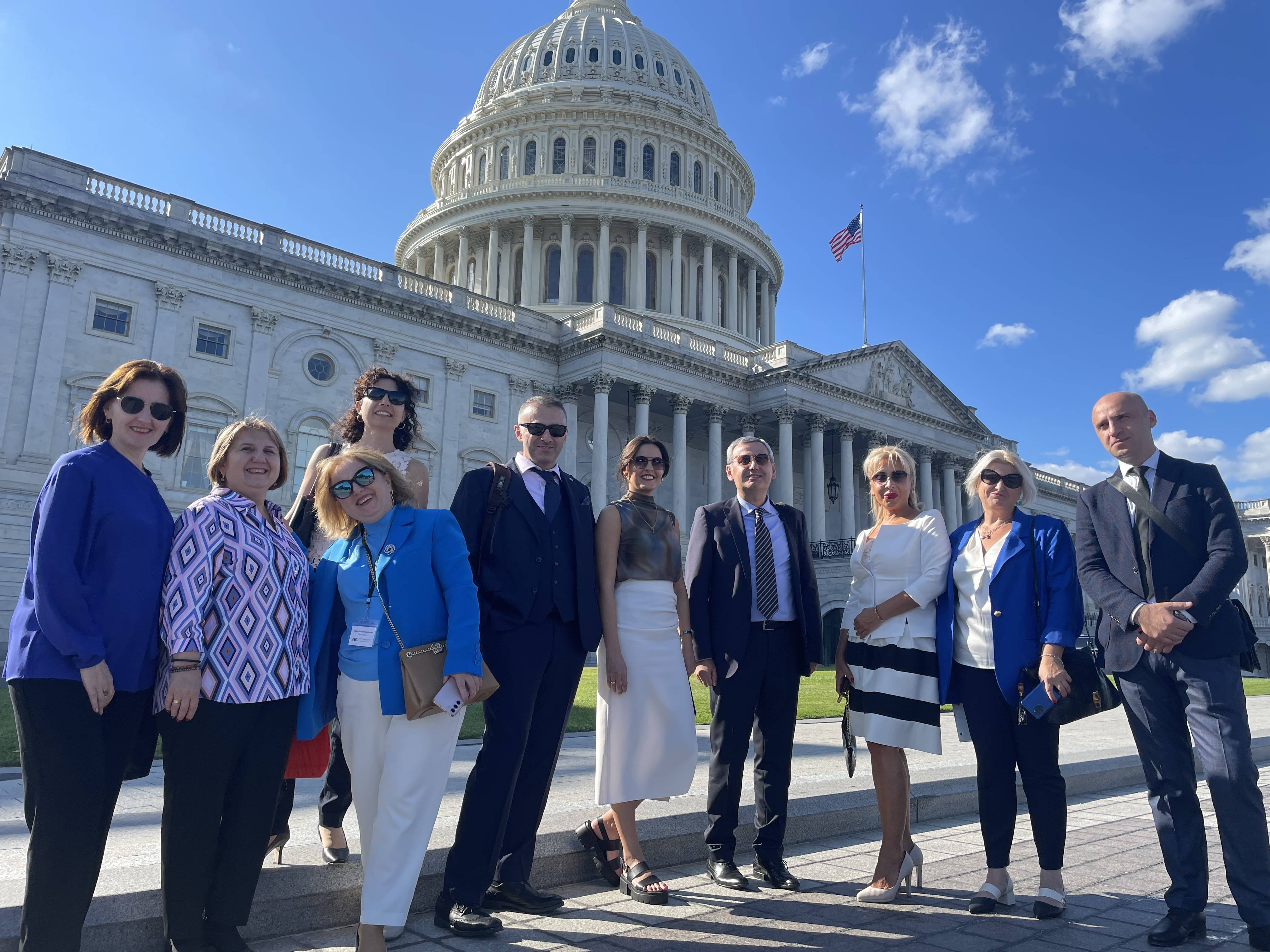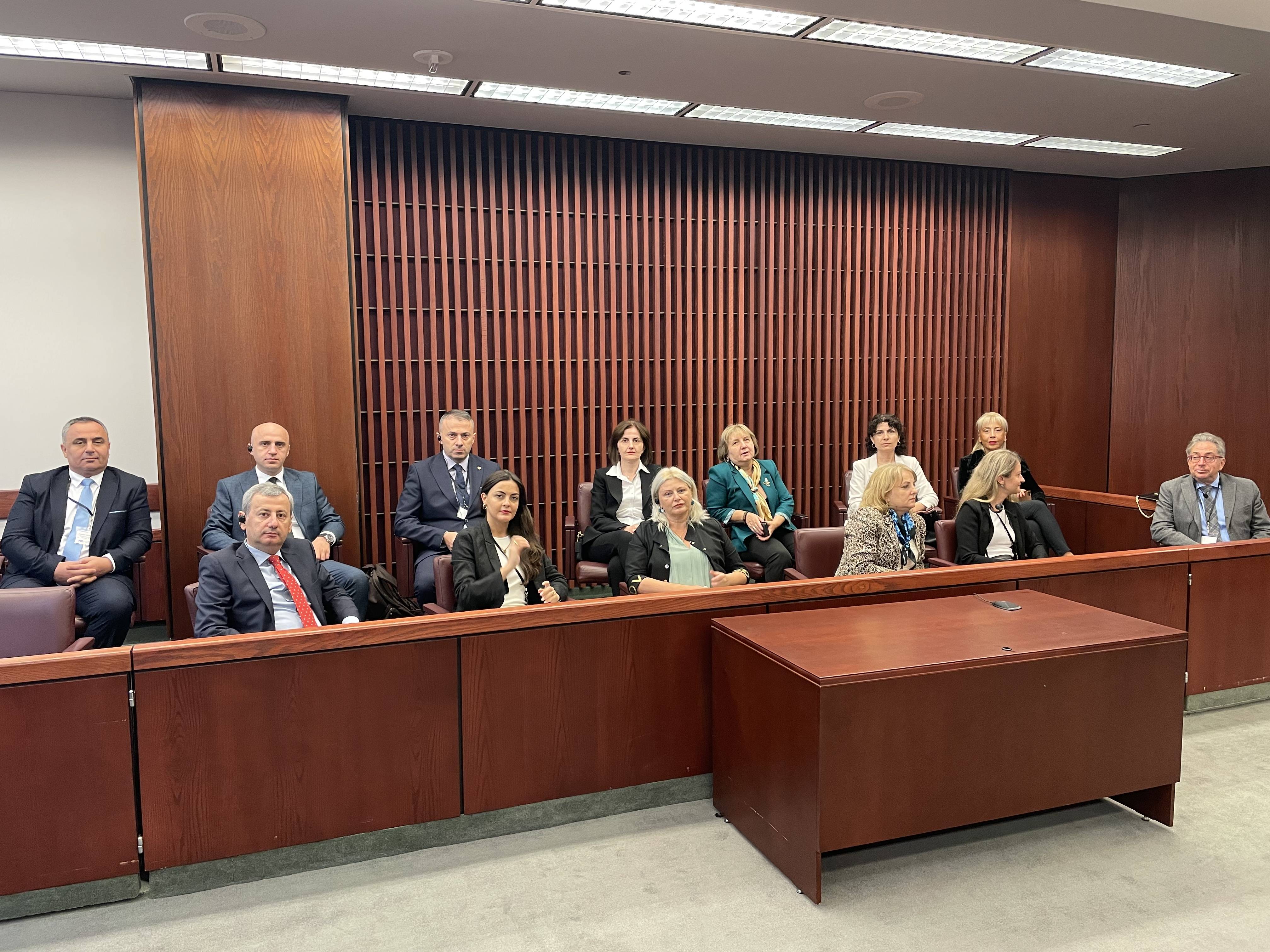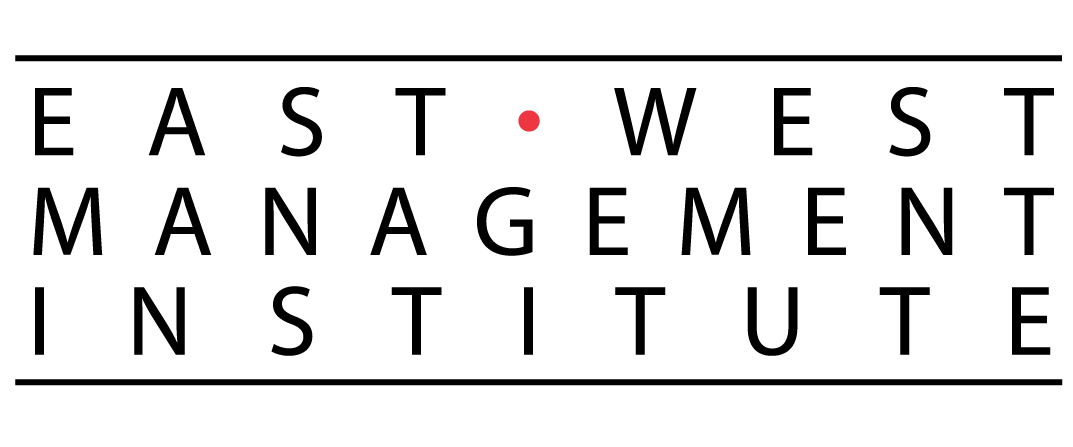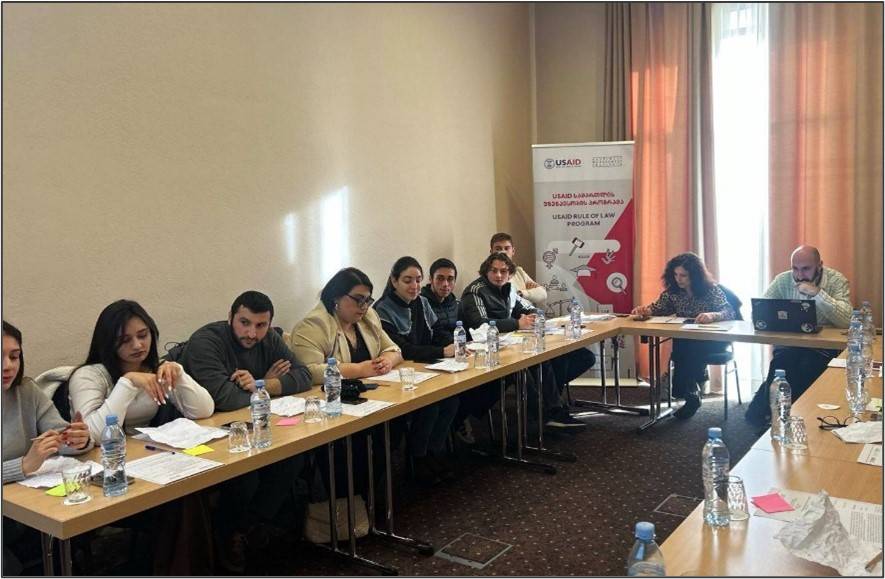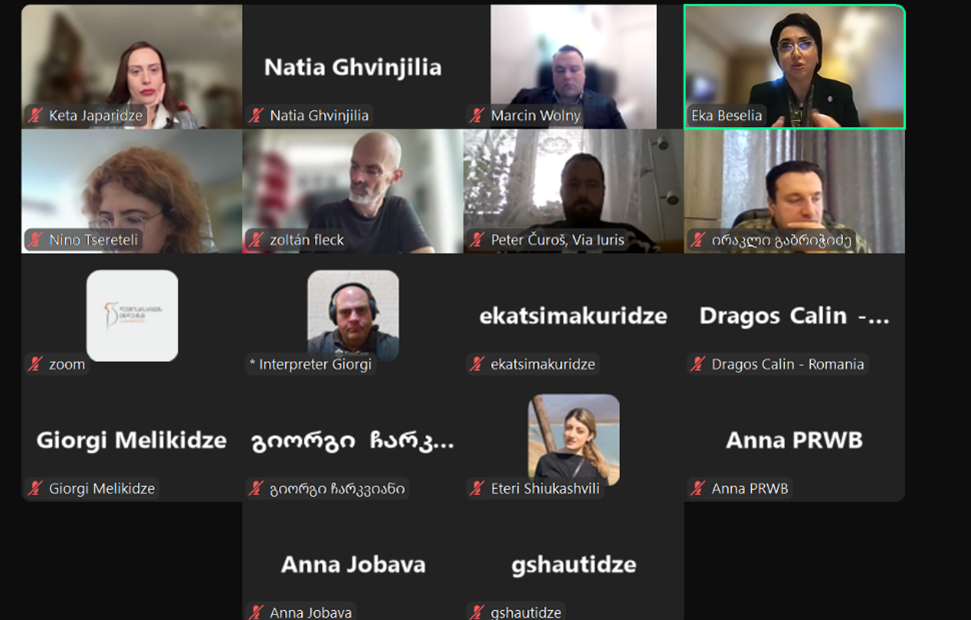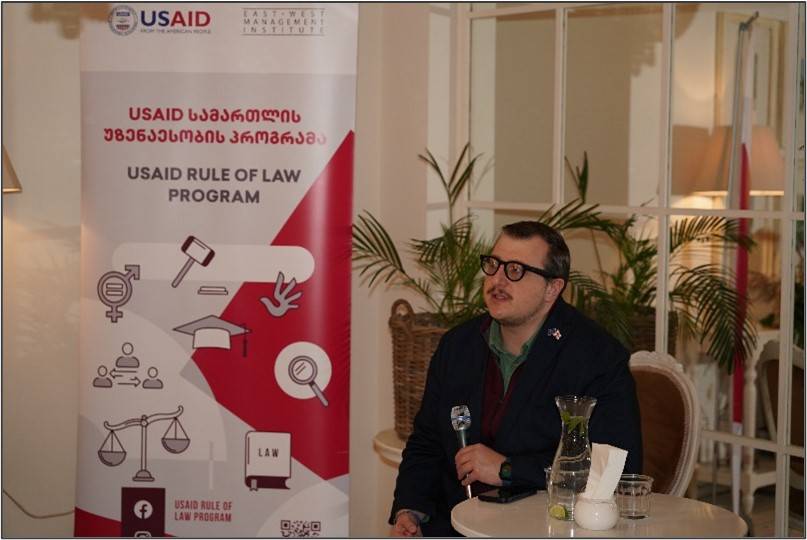Georgian Judges Sharpen Child Rights Expertise
To bolster their understanding of child rights and related legal practices, a third group of first and second-instance civil, administrative, and magistrate judges took part in a study tour in the eastern United States.
Over the course of the 10-day study tour (September 18-28, 2023), these dedicated jurists gained insights from U.S. courts and organizations, enhancing their expertise on juvenile participation in judicial proceedings, safeguarding children's rights during hearings, regulating parental visitation after divorce, and determining a minor's place of residence. Additionally, the Georgian judges were introduced to U.S. court practices in areas such as case flow management and people-centered justice.
The participants of the USAID Rule of Law Program’s third study tour, facilitated by ABA ROLI, were judges from Tbilisi Court of Appeals, Tbilisi City Court, Bolnisi District Court, Tetritskaro District Court, Kutaisi City Court, Rustavi City Court, and Sighnagi District Court. An assistant judge from the Civil Chamber of the Tbilisi Court of Appeal was also part of the delegation.
The journey began with the judges visiting Washington, DC, where they had the opportunity to observe family court hearings and custody cases, as well as engage in discussions with judges at the Superior Court of the District of Columbia and the Circuit Court of Montgomery County, Maryland.
Manana Nikachadze, judge of Kutaisi City Court, noted that although there are distinct differences between the Georgian civil system and common law systems, the goal is the same: to protect the best interests of the child. “In Georgia, a child’s presence in court in mandatory; in the U.S., the judge has the authority, not the obligation, to have the child in court. The existence of specialized juvenile courts in the U.S. has led to other improved practices as well. It was interesting to see that issues related to the separation of the child are discussed at open court sessions. Video communication with the parties is also actively used. It would be good if such specialized juvenile courts were created in Georgia as well." – she said.
Tbilisi City Court judge Manana Meskhishvili highlighted that "It was important that we met with various participants involved in child cases, it gave me the opportunity to see the U.S. system from different perspectives. I will use the information I received about special techniques for interviewing a child the most in my judicial practice."
The next leg of the journey took the delegation to Atlanta, Georgia, where they first observed juvenile hearings in the Fulton County Juvenile Court. They attended permanency hearing for a child in a dependency case, a legitimization hearing in two dependency cases, and a delinquency adjudication hearing. The Georgian judges also met with judges from the Court.
The delegation also observed juvenile proceedings in the Douglas County Juvenile Court, where custody and delinquency cases were heard. After the court sessions, the Georgian judges engaged in discussions with a group of five U.S. judges from juvenile, magistrate, and probate courts, sharing valuable insights into their respective practices and experiences.
The judges also met with representatives of the Georgia Child Advocacy Center, where they learned about the Center's vital role in providing legal and psychological services to over 700 juveniles in Fulton and Douglas counties. They also participated in a panel discussion at Emory Law School, where they met with the law school's leadership and gained insights into how the institution contributes to the legislative process and the improvement of juvenile-related legislation and regulations.
Vladimir Khuchua judge at Tetritskaro District Court, said that the meeting at Emory University was interesting, as former judges and prosecutors who study children's rights in a systematic manner presented problematic issues and possible ways to solve them.
Tamar Tsereteli, a Tbilisi Court of Appeals judicial assistant, singled out several issues that were interesting to her, in particular the principle “One family, one judge,” according to which disputes arising within one family are referred to the same judge who already has information about past violations or disputes. Also interesting was the principle “No case about me, without me,” according to which the court tries to solve issues related to the child with the participation of the child and based on his/her opinion. She said the meeting with Douglas County judges was also interesting, especially the mechanisms used to force payments of alimony (child support). She felt it is necessary to implement such mechanisms in the Georgian legal system, because currently there is practically no way to collect the alimony if the parent obligated to pay alimony is not paid through cashless payments.
Ketevan Kuchava, judge of Tbilisi City Court, said: "For me, attending court proceedings was the most interesting and I enjoyed observing judges’ communication with the courtroom and the skills leading the session so that the participants trusted the court and respected its decision. It was also important to see that children are not brought to court unless it is important for decision-making, when there is a conflict between the parents, or when the position of the legal representative is different from the best interests of the child."
The study trip provided the Georgian judges with valuable insights into the practices of U.S. courts concerning child rights. They also gained insights into case flow management and the principles of people-centered justice. The connections established with their U.S. counterparts will serve as a valuable resource for improving the Georgian judges’ professional practice, independence, and overall effectiveness.
